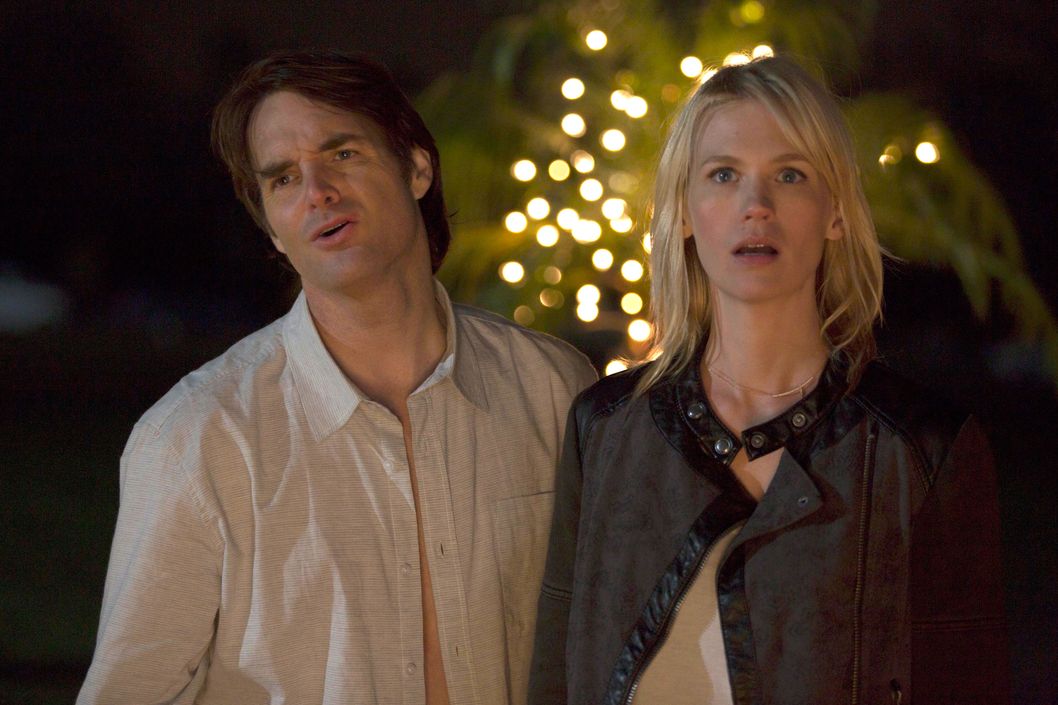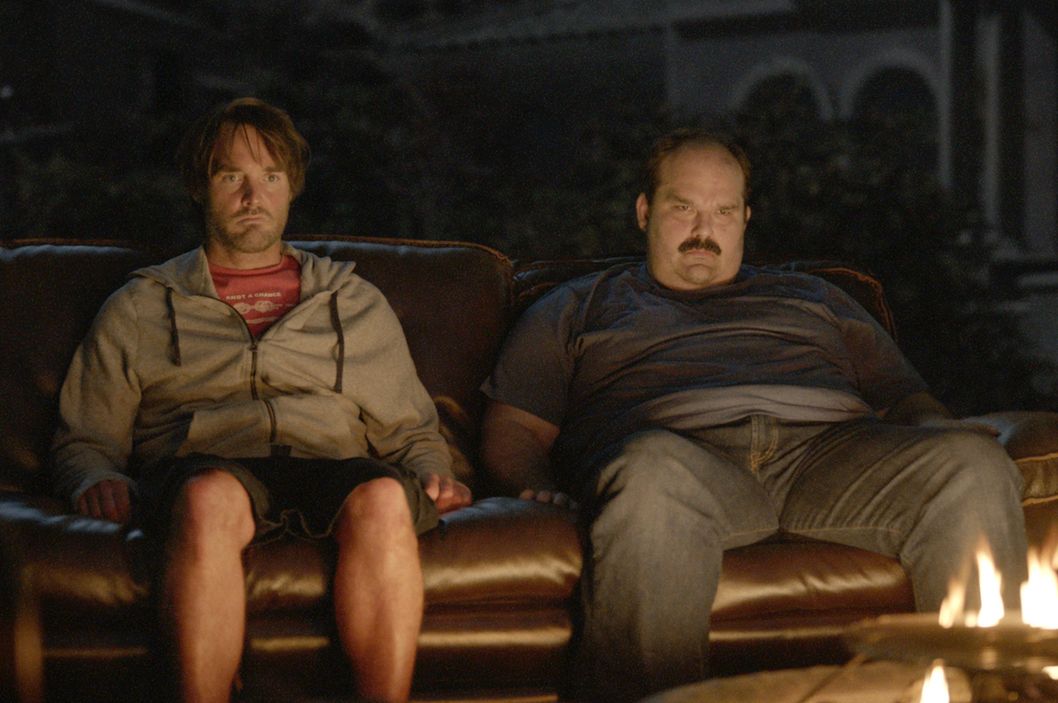By providing your information, you agree to our Terms of Use and our Privacy Policy. We use vendors that may also process your information to help provide our services. This site is protected by reCAPTCHA Enterprise and the Google Privacy Policy and Terms of Service apply.
How ‘The Last Man on Earth’ Challenges the Form and Function of the Sitcom

When “The Last Man on Earth” premiered in March, critics immediately sensed something special. More specifically, they were quick to make note of its promise for the slowly-decaying network sitcom. James Poniewozik of Time said that “It does not seem like the sort of thing that would be a primetime network sitcom. And that’s precisely why it should be one.” As perhaps the consummate declaration, Andy Greenwald’s review for Grantland was headlined, “Proof of Life: ‘Last Man on Earth’ and a Glimmer of Hope for the Network Sitcom.”
From the clear originality in premise, to the sparkling visual template created by directors Phil Lord and Christopher Miller, “The Last Man on Earth” presented itself as blessedly different. But while critics lobbed in its favor early on, the critical consensus on the show since has witnessed more twists and turns than a juicy episode of “Empire.”
For the most part, these fluctuating reactions have been intentionally provoked. Creator Will Forte plays its only original character, Phil Miller, whose titularly-based predicament rendered him lonely, a little horny and, to our eyes, enormously sympathetic. But episode by episode, Forte wiped that perception away. He built a fictional universe from scratch, and in doing so, has challenged the function and form of the sitcom as we know it.
[Spoilers through Episode 12, “The Tandyman Can,” below.]
Starting From Scratch
 The very definition of “Last Man on Earth” as a situation comedy is inherently unorthodox. Through the 12 episodes we’ve spent in Tucson, what began as a one-man show has meticulously changed course. A half-dozen new characters have been introduced to build up the series’ diverse community of survivors.
The very definition of “Last Man on Earth” as a situation comedy is inherently unorthodox. Through the 12 episodes we’ve spent in Tucson, what began as a one-man show has meticulously changed course. A half-dozen new characters have been introduced to build up the series’ diverse community of survivors.
The frequency of these “surprise” new cast additions has emerged as the show’s signature. Right in that basic structural conceit, Forte and his team have deliberately pushed against a core sitcom convention. Typically, network half-hours introduce an ensemble of characters, and are tasked to broadly sketch out how they interact and relate by their pilot’s conclusion. In “Last Man on Earth,” dynamics, allegiances and even character traits are ever-evolving — familiarity is where we start, but not where we end.
The pilot introduces Phil as a lovable, lonesome (and dirty) schlub. By the end of the next installment, he’s the snarky Oscar to Carol’s (Kristen Schaal) peculiar Felix, avoiding her despite the fact that she is, to his knowledge, Earth’s only other inhabitant. And by the end of the next episode, he’s a miserably married man, tempted — nay, jumping at the chance — to stray once January Jones‘ beautifully enigmatic Melissa comes into the picture.
In effect, the early-going of “Last Man on Earth” fashions Phil as a new sitcom archetype with the start of every episode. While such rapid change is intrinsically averse to the typical sitcom, “Last Man” eventually falls into its own, strange rhythms. Here, dramatic catalysts unfailingly come in the form of actual people, as they work to disrupt the status quo and revamp the pacing and progression of the show’s narrative. In other words, you may not know who is going to appear next, but you have a pretty good idea that someone will. Sitcoms run on a certain level of predictability, and this is no exception. But “Last Man on Earth” settles on its predictable beats through a thoroughly unpredictable construct.
An Exercise in (Un)likability
 Conversations about the necessity of likable TV characters can range on deafening, but with sitcoms there comes a certain expectation. Larry David’s work, namely on “Seinfeld” and “Curb Your Enthusiasm,” may feature plenty of characters saying and doing awful things, but they are constructed in a way where their prickliness is both endearingly absurd and wittily self-reflective. (Plus, David’s salty humor isn’t exactly standard for TV comedy.) Generally, sitcoms evoke warmth, from “Modern Family” and “The Big Bang Theory” to “Will & Grace” and “Friends.”
Conversations about the necessity of likable TV characters can range on deafening, but with sitcoms there comes a certain expectation. Larry David’s work, namely on “Seinfeld” and “Curb Your Enthusiasm,” may feature plenty of characters saying and doing awful things, but they are constructed in a way where their prickliness is both endearingly absurd and wittily self-reflective. (Plus, David’s salty humor isn’t exactly standard for TV comedy.) Generally, sitcoms evoke warmth, from “Modern Family” and “The Big Bang Theory” to “Will & Grace” and “Friends.”
“Last Man on Earth” inverts the sitcom likability equation to a punishing degree. All alone, Phil is appealingly melancholic. With Carol, he’s reluctantly friendly. But with the arrival of Melissa, he emerges as incessantly annoying and abhorrently insensitive. His sexual pursuit — which Forte hams up considerably in his performance — continues on with total disregard for his wife, and his behavior turns irrationally extreme. It’s an idea Forte and his writers seem determined to top on a weekly basis. The arrival of Todd (Mel Rodriguez), the happy-go-lucky type who immediately strikes up a connection with Melissa, brings out an even nastier side in our protagonist. Phil considers literally driving his new rival out of town against his unsuspecting will, and begins telling absurdly outlandish (and obvious) lies to anyone who will listen. The stakes keep rising until everyone else is ready to drive him out of town.
The progression of Carol as a character similarly informs this approach to likability. Initially, Phil’s irritation with her is realized within mostly understandable terms. With no one else around (literally), she still insists on stopping at stop signs, parking in parking spaces and toileting in toilets. She’s a stickler for the rules: Even if there’s a logic to what she’s doing, Phil’s “come on” attitude seems fully justified.
With that in mind, it’s no accident that as Phil turns unbearable, Carol grows into the show’s sympathetic center. The show switches their roles, not only in matters of how their characters develop but in the ways their stories are told. Inevitably with more characters in the mix, “Last Man on Earth” stops being exclusively told from Phil’s point-of-view. Consequentially, we come to know Carol as a sexual being in her own right, and interpret her idiosyncrasies with new perspective. Imagine if “Curb Your Enthusiasm” steadily began to tell its story from Cheryl’s (or anybody else’s) perspective: You’d be experiencing a very different show, with a much more complicated relationship with its protagonist.
Sexual Tension, All the Time
 The middle stretch of this “Last Man on Earth” season is overwhelmingly dedicated to Phil’s desire to sleep with Melissa, with the chances of it happening diminishing by the half-hour. To call it one-note would not be inaccurate.
The middle stretch of this “Last Man on Earth” season is overwhelmingly dedicated to Phil’s desire to sleep with Melissa, with the chances of it happening diminishing by the half-hour. To call it one-note would not be inaccurate.
The near-episodic influx of new characters has established “Last Man on Earth” as one of, if not, broadcast TV’s most heavily-serialized sitcoms. Yet for all of the raw potential of its bare-bones concept, especially with the freedom to tell long-form stories, the show has honed in on a relatively simple idea for conflict: sex. And though the pining for a little sexual intimacy was initially restricted to Phil, the appetite for sex in this post-apocalyptic wasteland has since come to more or less define what each character in this show is after.
Next to stop in Tucson after Todd were Gail (Mary Steenburgen) and Erica (Cleopatra Coleman); aside from their respective accents — Gail is vaguely from the South, and Erica somewhere in Australia — they’re severely lacking in characterization. Their pure goal, at least so far, is sex: Even after observing Phil Miller as a pathological liar desperately trying to sleep with any woman not named Carol, both practically throw themselves at him. Of course, as is the show’s way, something yet again prevents Phil from sealing the deal; it’s another newly-discovered survivor, the hunky Phil Miller the second (Boris Kodjoe). Gail and Erica aren’t the only interested parties this time: Carol gets in on the flirtatious action, too, and to much better results.
As he installs showers, fixes doors and plans a farm, the new Phil Miller’s presence jolts for the way he reminds that these characters are living in a desolate landscape. Prior to his arrival, there wasn’t much talk of rebuilding going on, aside from Carol needing her door fixed. Again and again, “Last Man on Earth” has been accused of squandering its comedic potential, favoring familiar relationship conflict over an actual engagement with its uninhabited, expansive universe.
Yet that seems to be exactly the point. Fascinatingly, the show has realized a coupling-up narrative strategy that’s far more realistic than what most sitcoms typically provide, even as it’s simultaneously poking fun at those very shows’ approach to romance. Sexual tension is ubiquitous to the form — only two of the half-dozen “Friends” didn’t end up with each other, while “Parks and Recreation” steadily dropped and added romantic interests for its core cast throughout its run. But its function is rarely in the interest of realistic human motivation.
The characters in “Last Man on Earth” literally have no one else to turn to — and it’s been a long time. The show contends with this idea absurdly, but also quite tenderly, as its circumstances compel connection between people of vastly different appearances and personalities. Whether between Carol and Phil (II) or Melissa and Todd, the resulting pairings are ones we as audiences don’t often get to see, in sitcoms or otherwise. Within the show’s set of conditions, they’re also surprisingly authentic.
What’s in a Sitcom?
 That Phil has so nonchalantly neared suicide in “Last Man on Earth” speaks volumes about the series’ dark undertones. Granted, other sitcoms challenging the form, like CBS’ “Mom,” are going intensely dramatic in a more visceral, immediate way. But there’s an existential streak running through “Last Man” that’s unmistakable.
That Phil has so nonchalantly neared suicide in “Last Man on Earth” speaks volumes about the series’ dark undertones. Granted, other sitcoms challenging the form, like CBS’ “Mom,” are going intensely dramatic in a more visceral, immediate way. But there’s an existential streak running through “Last Man” that’s unmistakable.
This certainly harkens back to the general, perhaps overarching question raised by “Last Man on Earth”: what does a sitcom need to be? It’s an especially prescient inquiry as network comedies continue to falter creatively and commercially in greater numbers. This season, we’ve seen successful efforts at more inclusiveness (“Black-ish,” “Fresh Off the Boat”) in sitcom stories, and single-camera projects have gone from minority to majority. Broadcast networks are redefining the status quo.
There’s a radicalism to “Last Man on Earth” that’s as enthralling as it is exasperating. The method to its madness has led to a 40 percent reduction in viewership from the premiere, to say nothing of the splintered reaction from critics. It’s not quite the show people thought, or in many cases hoped, it would be.
But judging it on its own terms, “Last Man on Earth” is an audacious and confronting meditation on the contemporary sitcom. It first observes, then subverts and finally, cleverly, parodies the way that we consume these stories. If nothing else, it brings a depth of perspective and confidence in risk that’s all too rare among networks’ annual slate of comedies.
It is, in other words, a challenge. It fulfills one of art’s most vital functions. And for that reason, “The Last Man on Earth” holds an irrefutable value — no matter how irritating it may get.
The season finale of “The Last Man on Earth” airs Sunday at 9:30pm on Fox.
By providing your information, you agree to our Terms of Use and our Privacy Policy. We use vendors that may also process your information to help provide our services. This site is protected by reCAPTCHA Enterprise and the Google Privacy Policy and Terms of Service apply.
Most Popular
You may also like


















